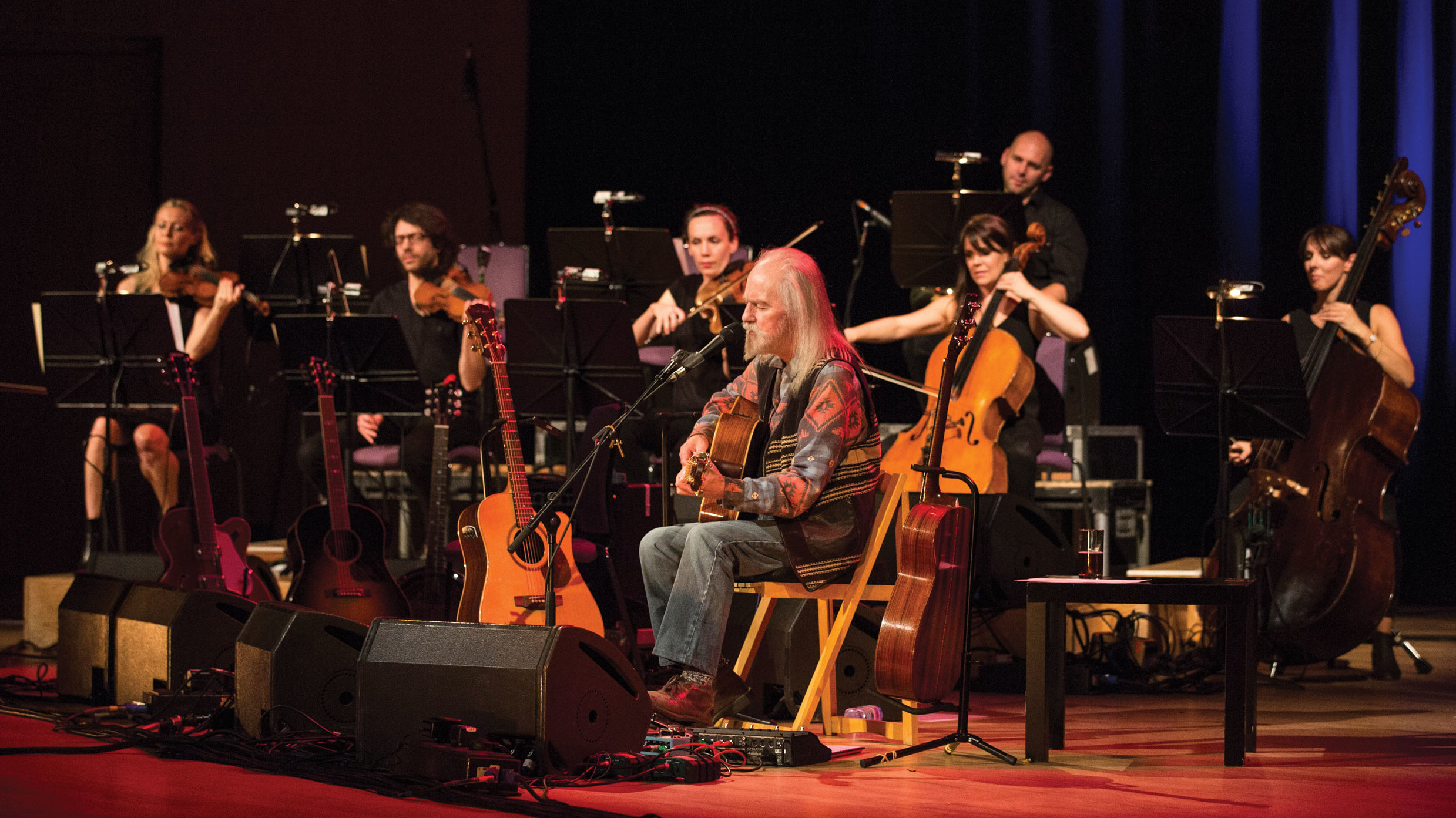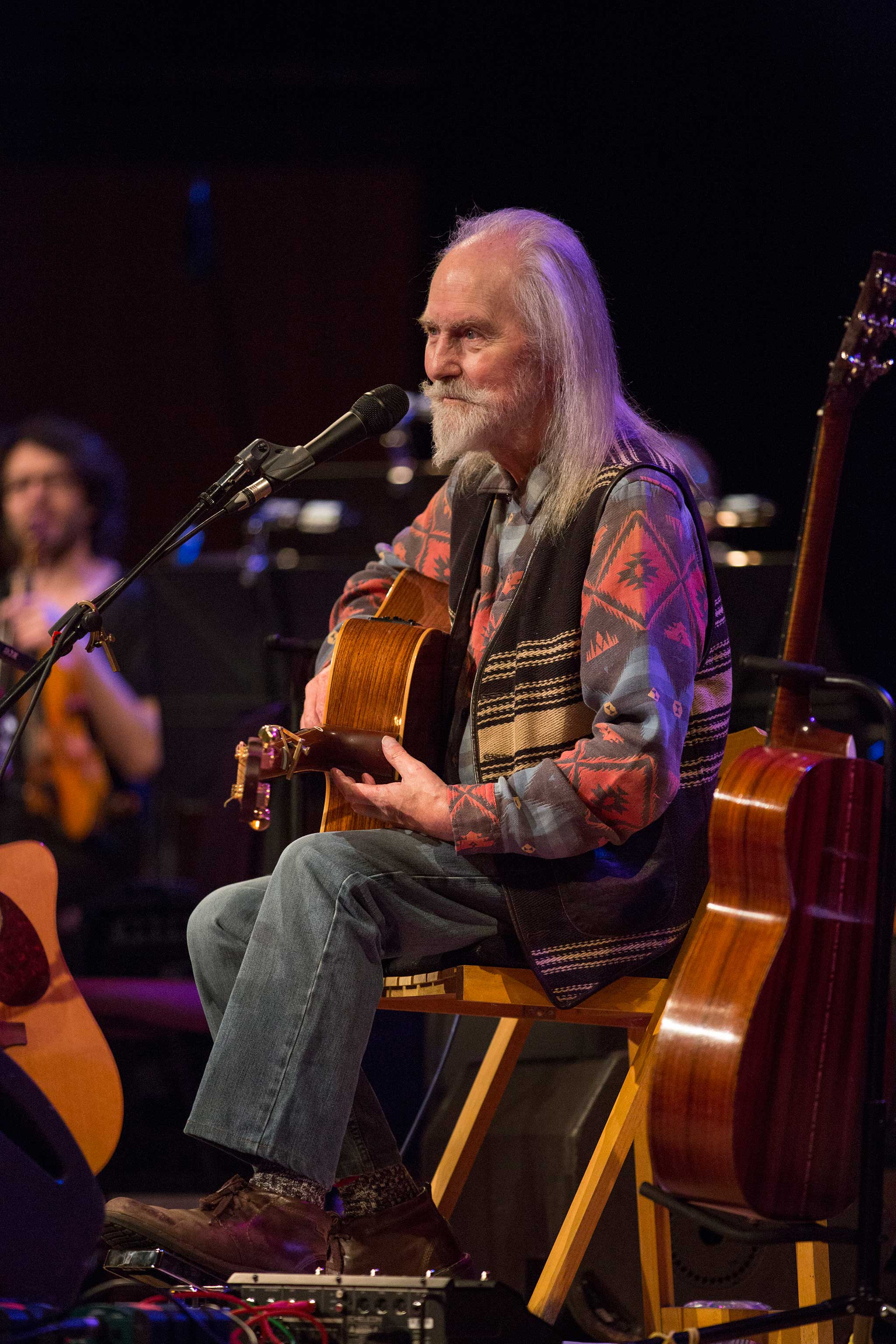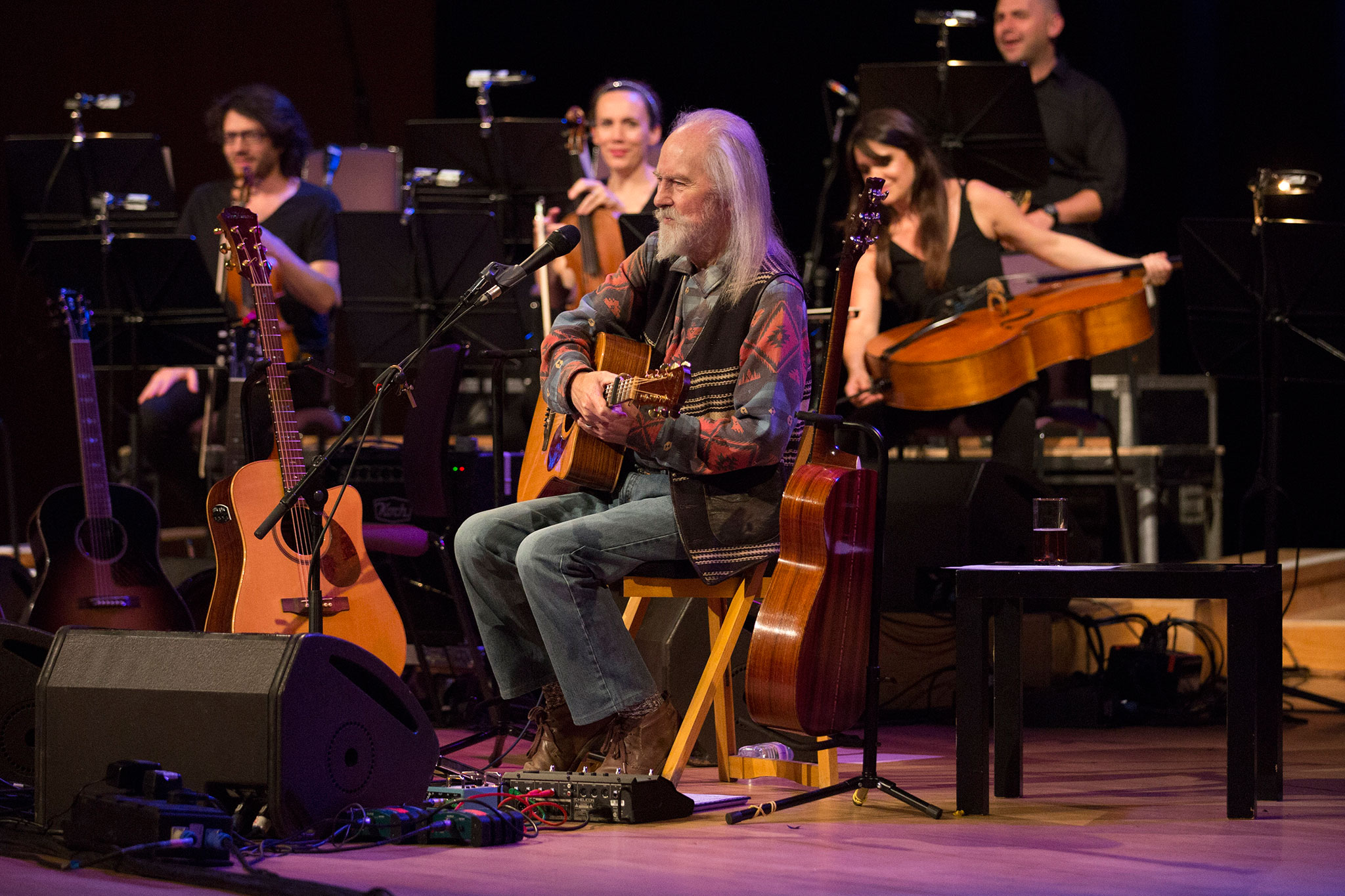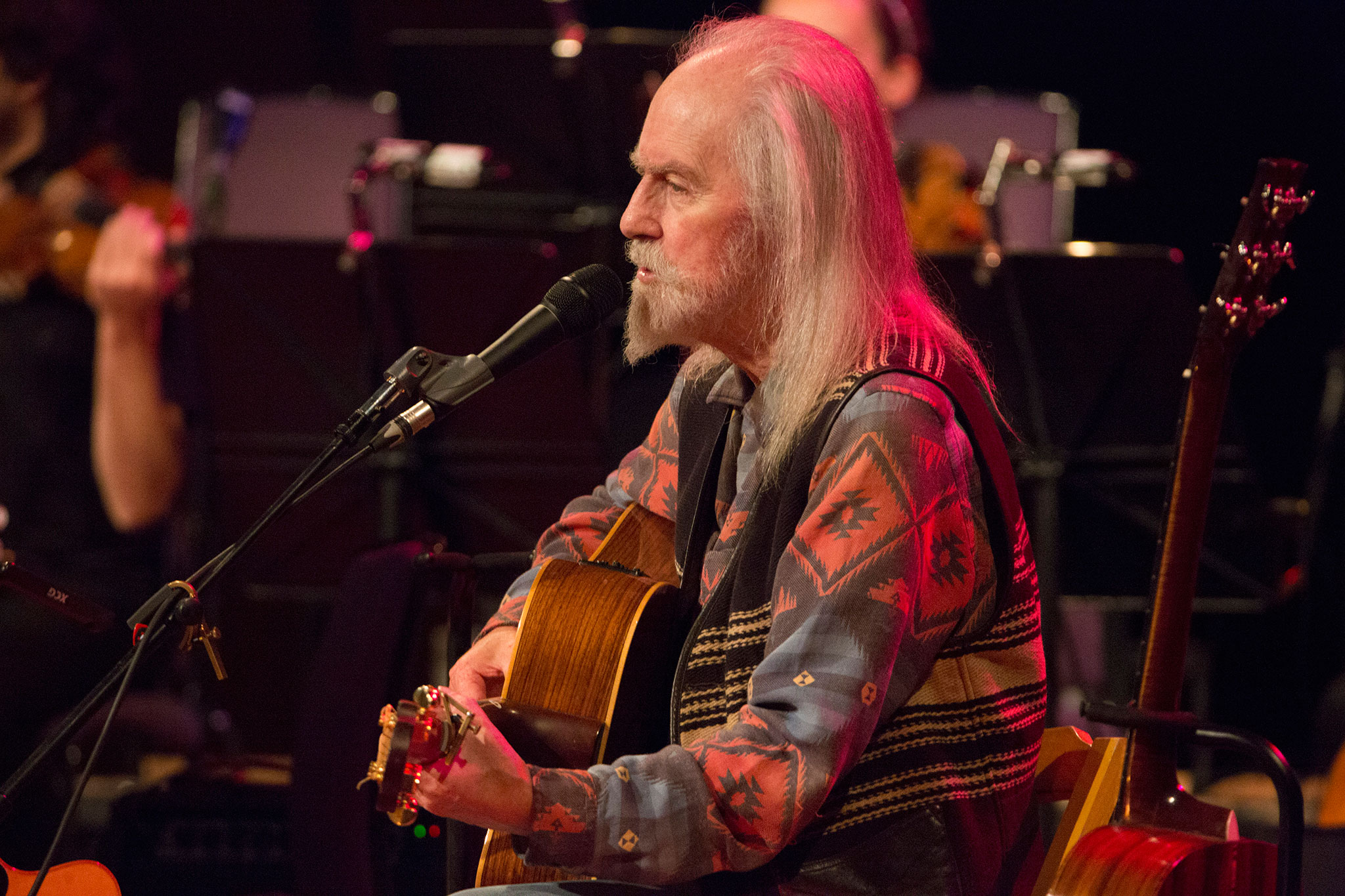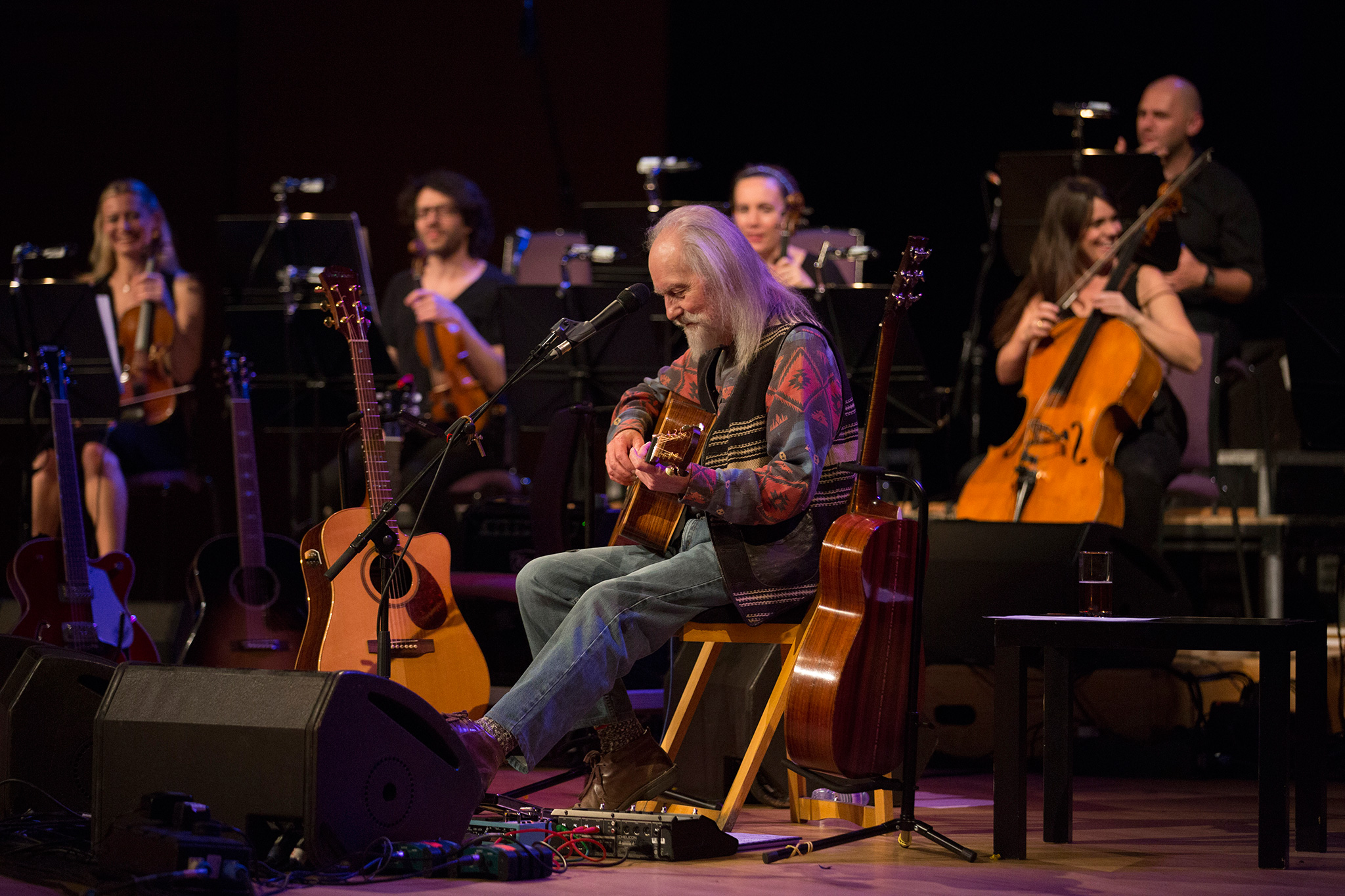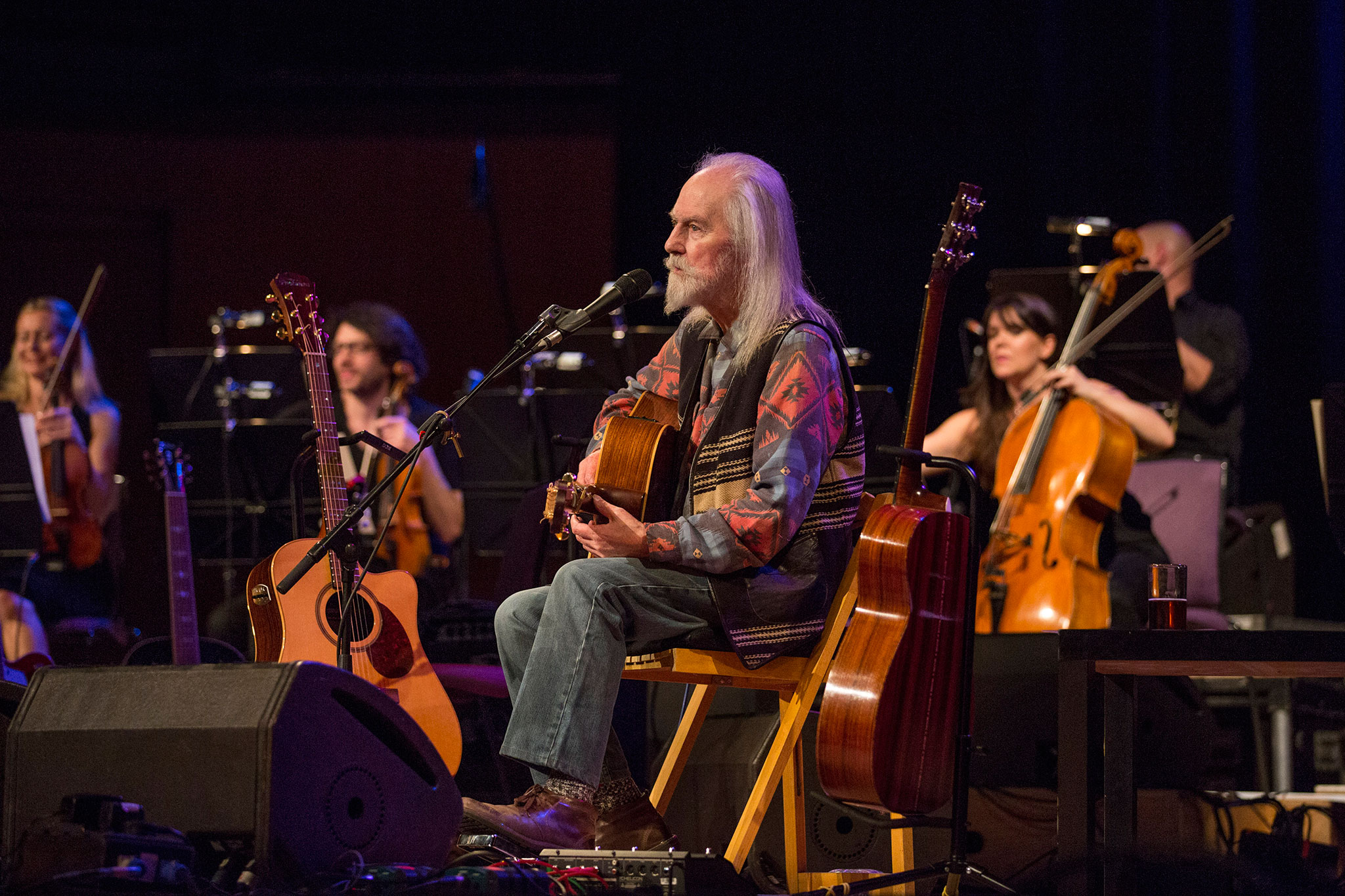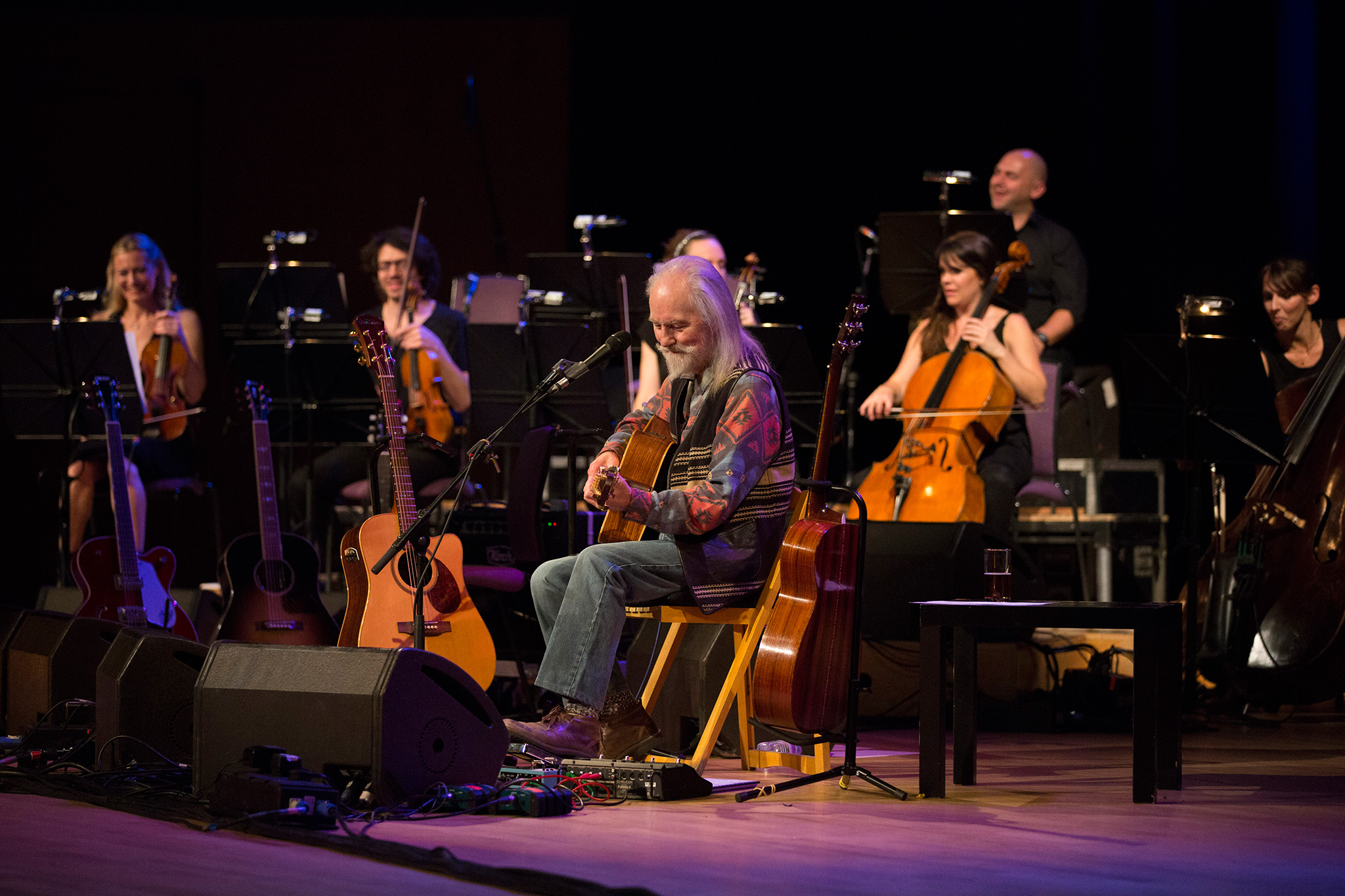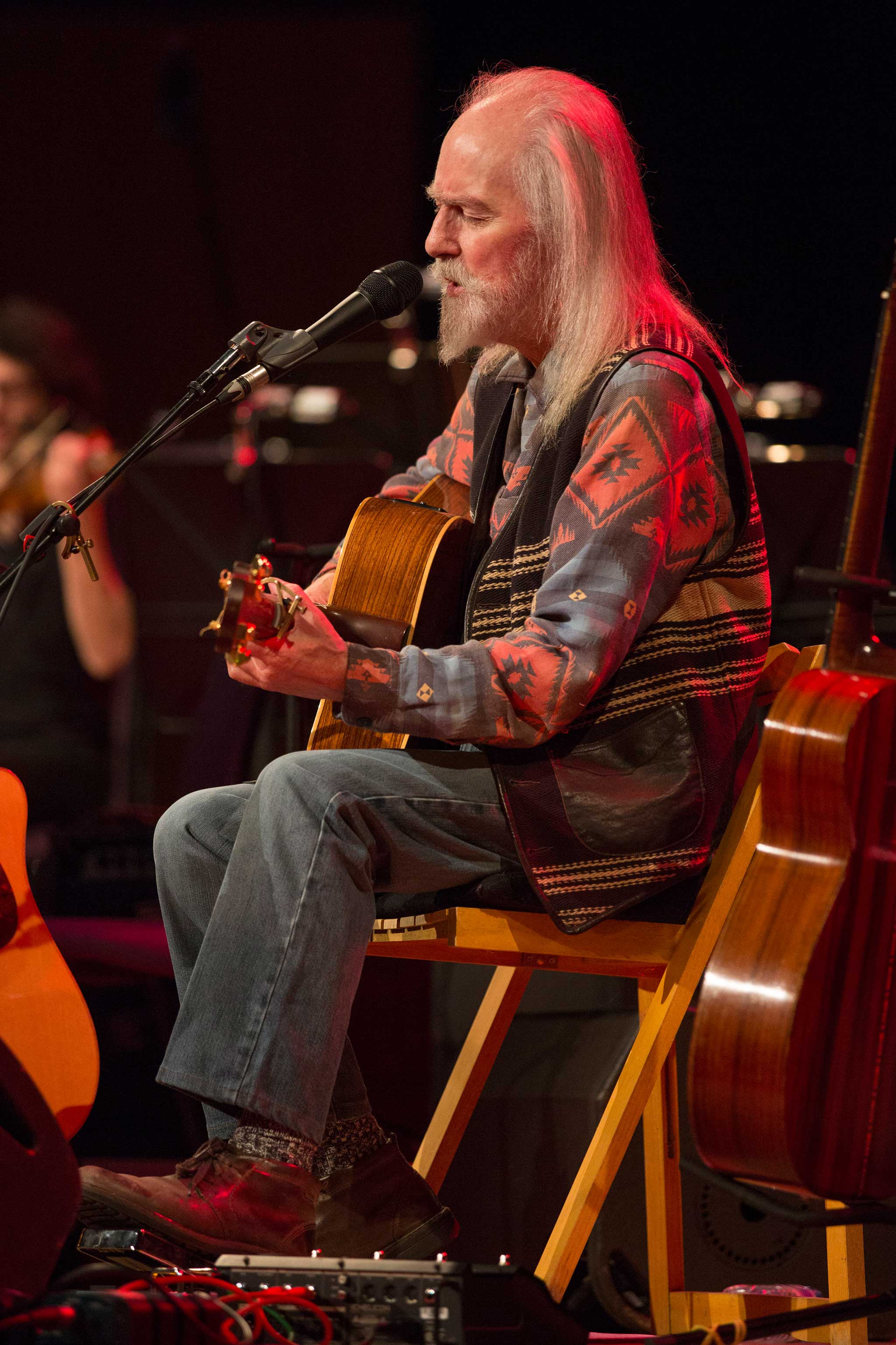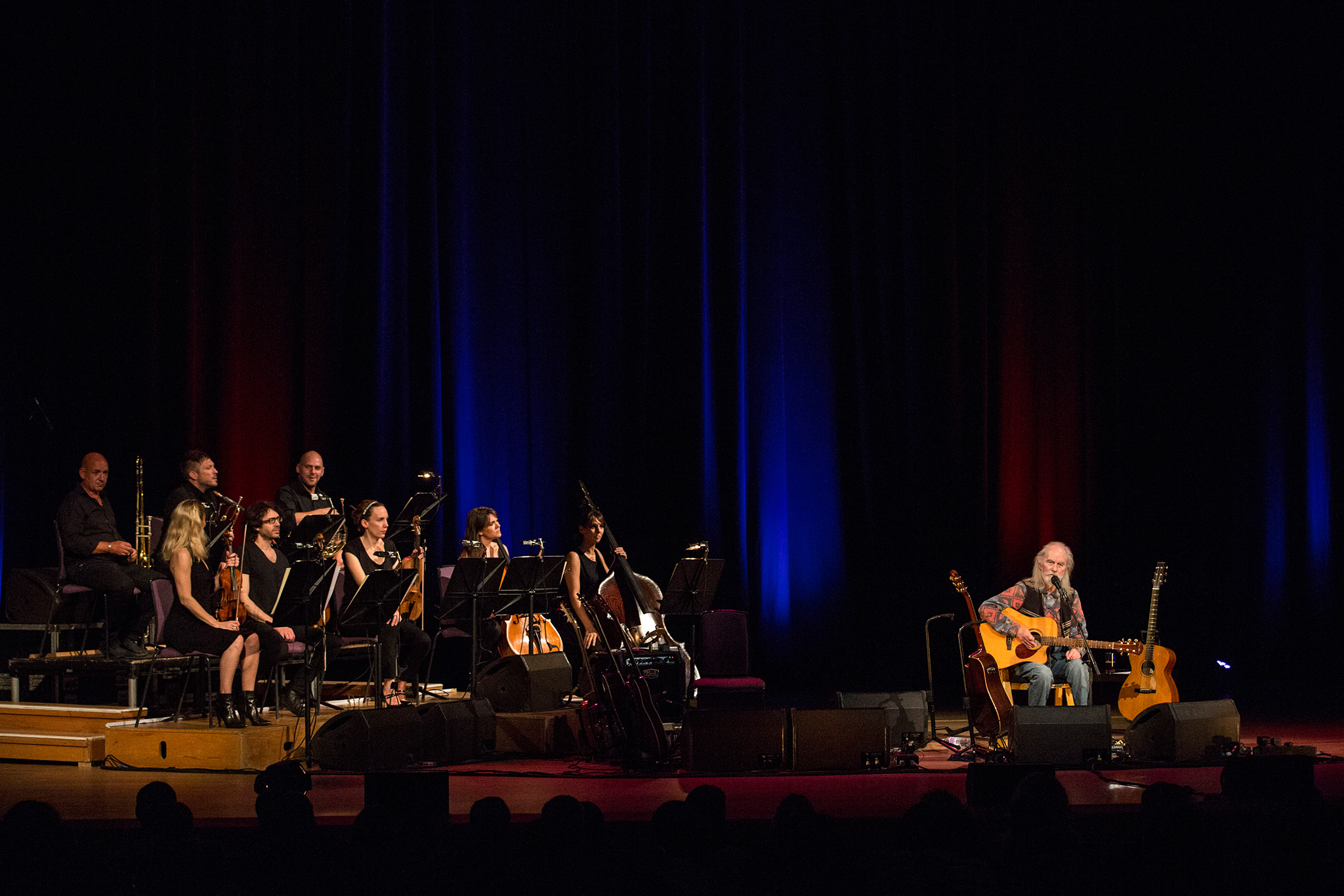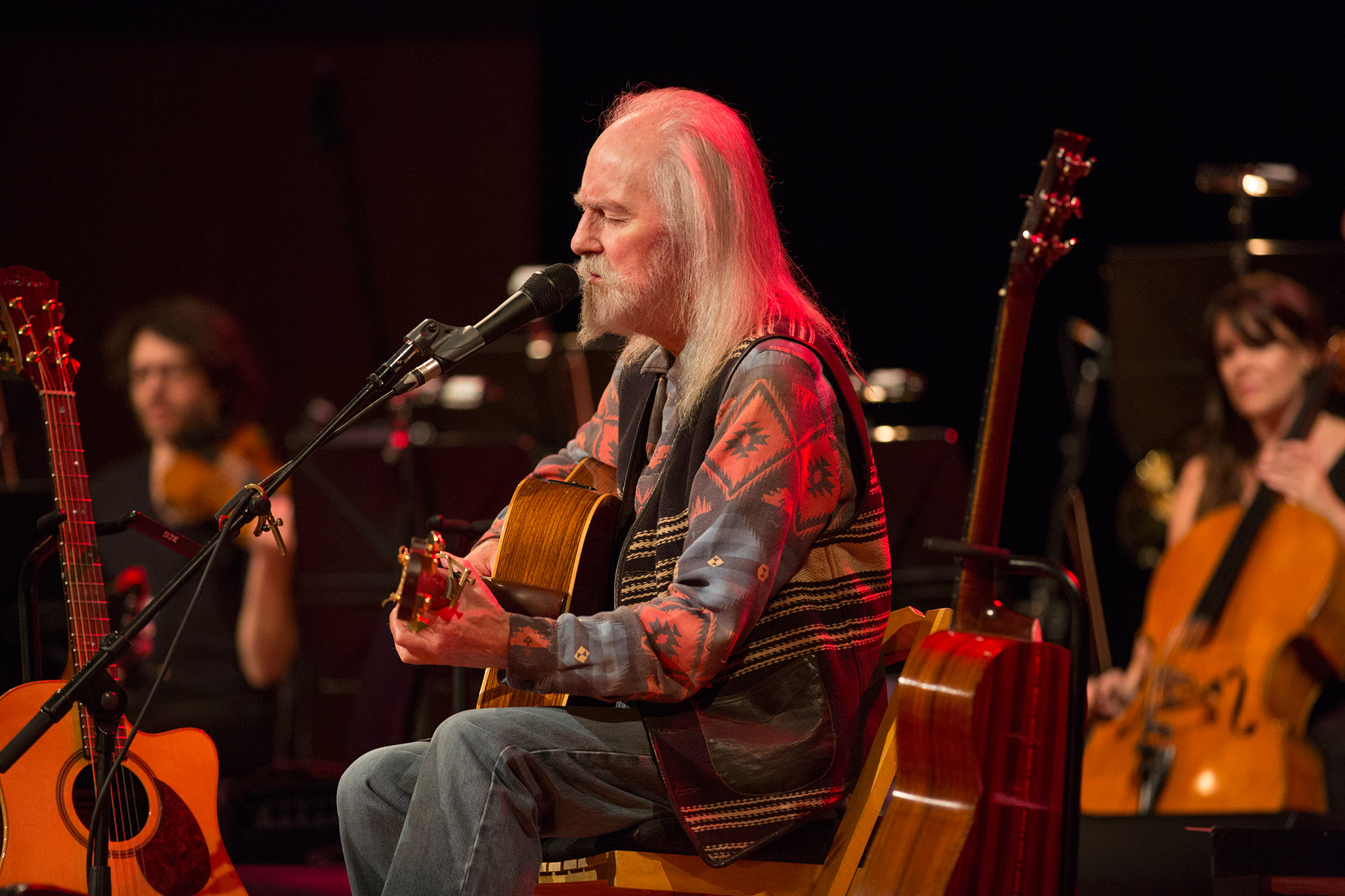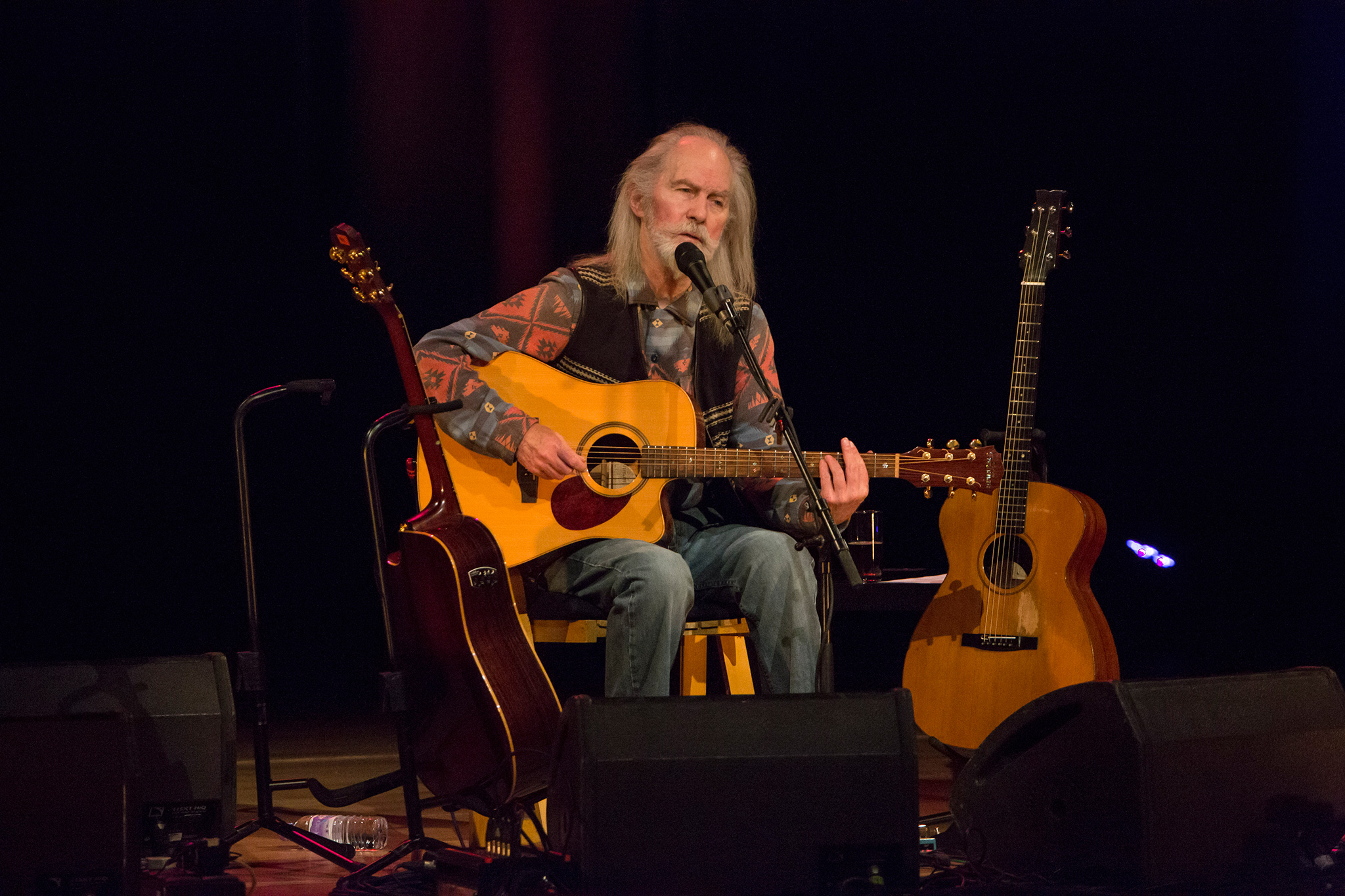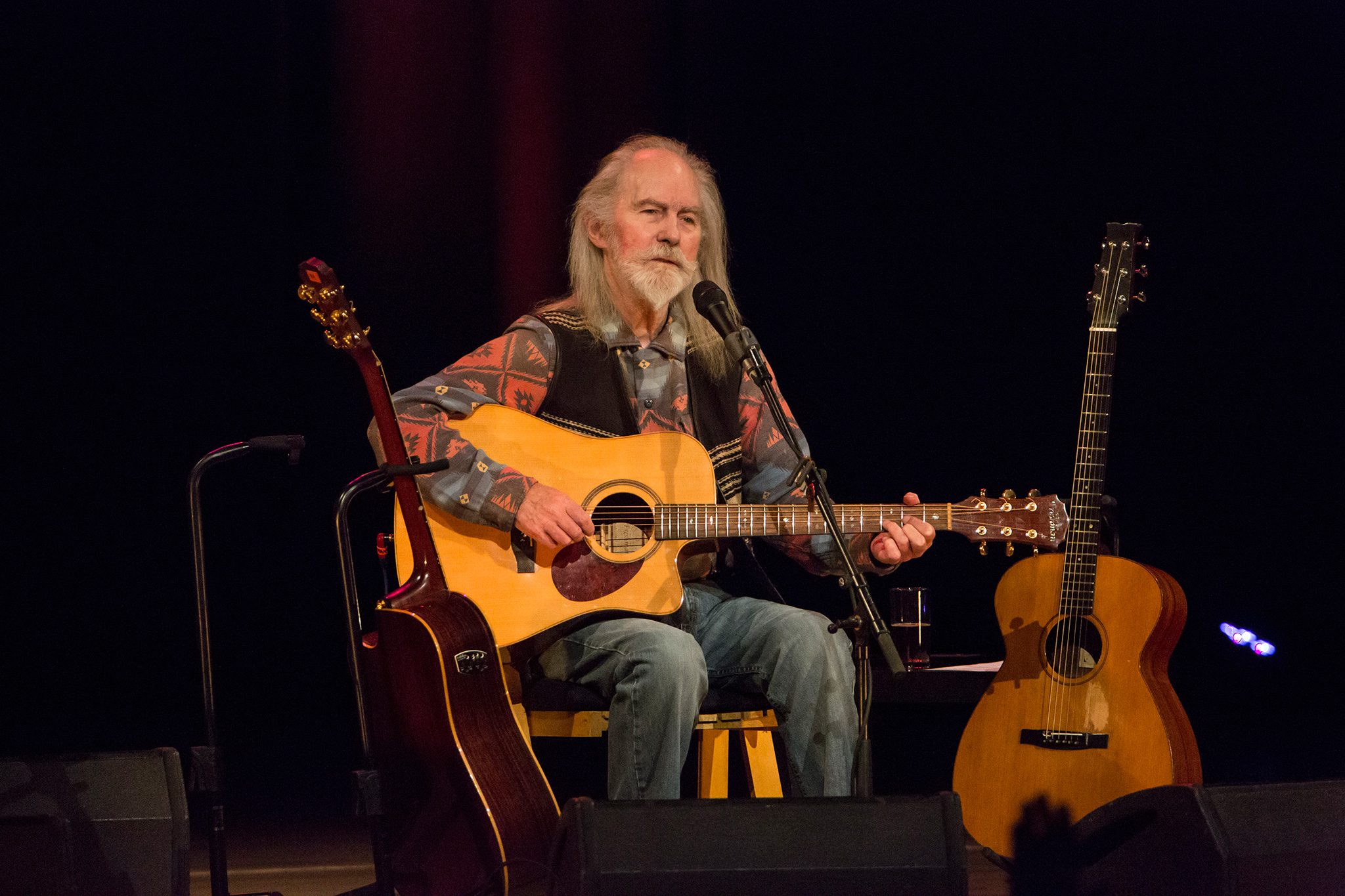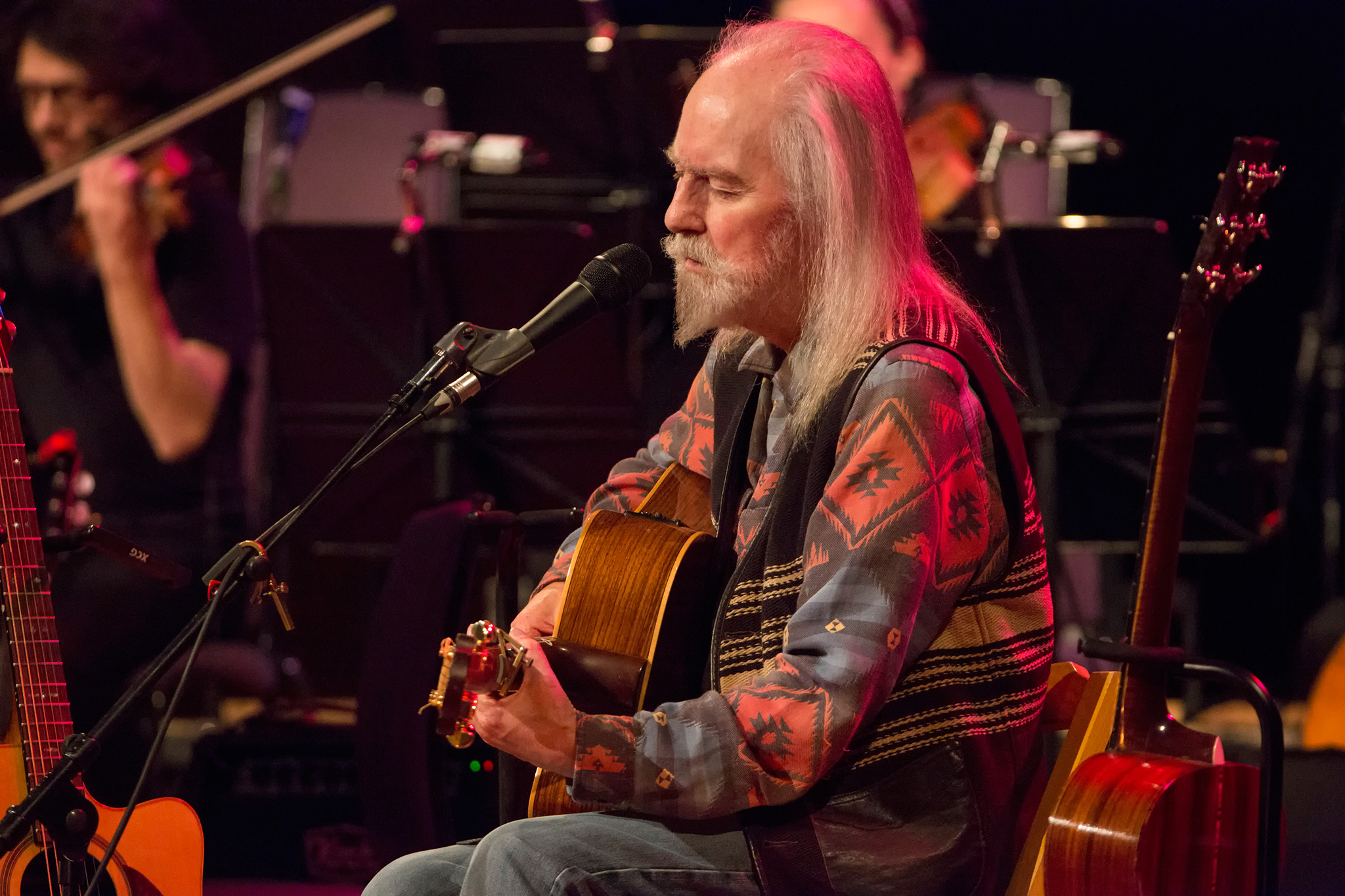Following his trial and subsequent acquittal of sexual abuse charges in 2015, Roy Harper has faced the unenviable challenge of rebuilding those things tarnished by his court case – among them his reputation, his finances and, it seems, his confidence. As a result, the 75-year-old songwriter appears to be experiencing intense, mixed emotions during tonight’s show.
Despite the Bridgewater Hall’s colossal size and spotlit, cruise-liner interior, the atmosphere is surprisingly intimate. Harper ably fills the space – the searing delivery of I’ll See You Again ringing far stronger than the studio vocal – and he’s aided in this by eight-piece string and brass backing, all of whom look on with practised reverence when not directly employed.
With the brass and strings, we’re given a glimpse of Harper’s full, fiery capability.
The jovial hecklers in the audience also play their part in removing formality. “Come on, Roy!” goes the cry, in response to a bum note. Harper tries his best to keep up with the crowd throughout, but while he has always seemed to be searching inside himself when he talks, these days it seems he must search a little deeper.
The edges haven’t all been rounded off, though. There’s a flitting but tangible spike in his speech, particularly ahead of Hors d’Oeuvres when he talks tacitly of “a society that’s quick to condemn”. Harper is joined onstage by friend and Cork neighbour Bill Shanley on electric guitar, and the latter’s shivering tone proves an effective accompaniment to Harper’s falsetto as the lyrics for this song run around the hall’s cavernous interior, ringing clear and crystalline.
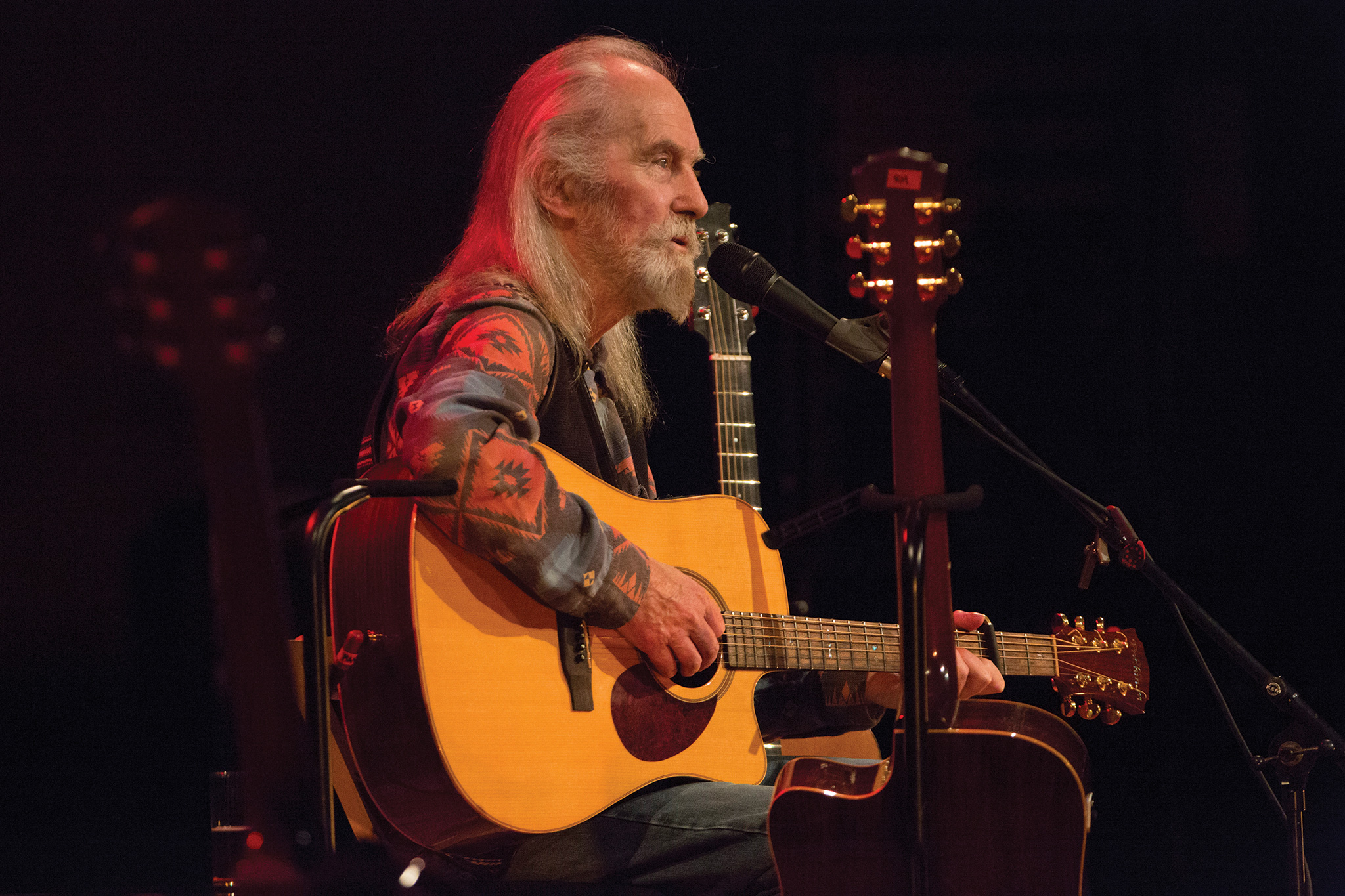
A rendition of Jimmy Page co-write Hangman is less successful, though. The songwriter’s words escape him in large, uncomfortable chunks, and the awkward sensation that ‘Dad’s going downhill’ isn’t alleviated by the several directionless anecdotes that follow. Me And My Woman proves the rallying point, however. It showcases some of Harper’s sharpest picking, while double bassist Beth Symmons and Shanley combine to flesh out a thundering acoustic sound. As the brass and strings conjure the 13-minute song to its zenith, we’re given a glimpse of Harper’s full, fiery capability.
Closer When An Old Cricketer Leaves The Crease provides the gentle counterpoint, the line ‘When an old cricketer leaves the crease, you never know whether he’s gone,’ seeming achingly pertinent here. In this setting, Harper’s mournful portrait of a vanishing Albion becomes a metaphor for the decreasing pocket of iconic performers among which he numbers.
The crowd suddenly rise to a prolonged standing ovation and Harper is caught out, suddenly overwhelmed and visibly moved. “Thank you,” the inveterate songwriter says repeatedly, wiping tears from his eyes. “Enough for one poor fool.”
After this show, Prog is left unsure if this an end or a new beginning, but it’s certainly a poignant full stop.
